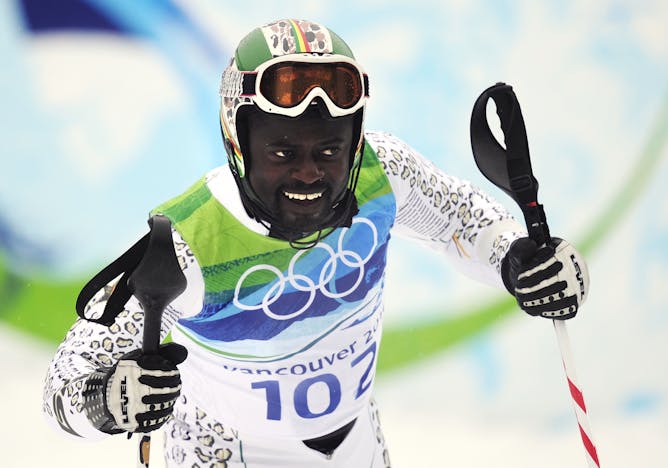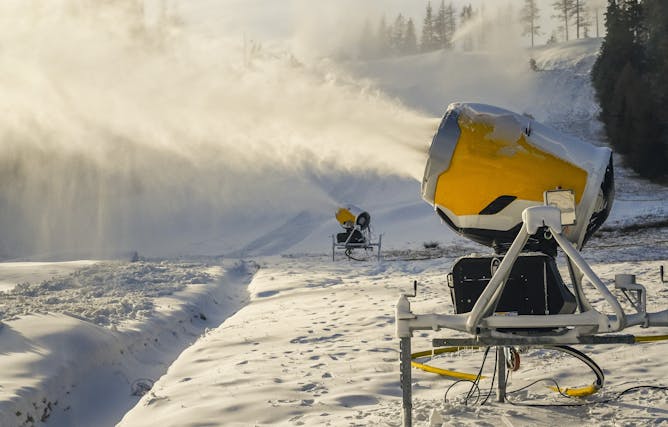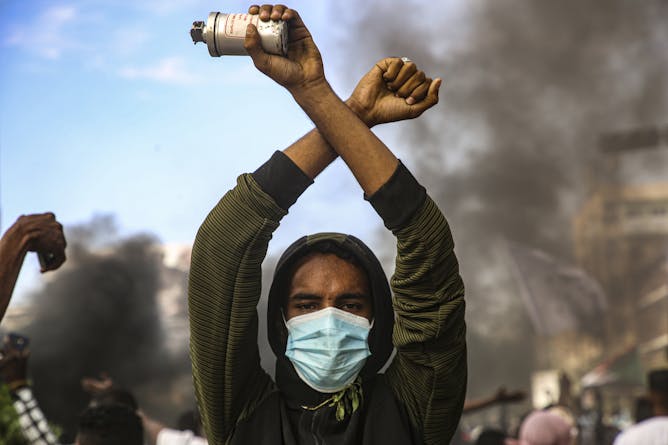|
Since 1908, African athletes have won over 400 medals at the summer Olympics. But they’ve never had any success at the Olympic Winter Games. This isn’t surprising given that the average annual temperature in Africa is 25.7 degrees Celsius and the difference between the average warmest and coldest month is a mere 1.9 degrees Celsius. Snow is a rarity.
Nevertheless African nations have been present at every winter games since 1984 and African athletes have blazed their own trails. Cobus Rademeyer takes us through the record.
There is, in fact, a dearth of real snow at this year’s Winter Games in China. As Peter Veals explains, basically all of the snow the athletes are competing on is made by humans.
The impact that COVID has had on people is now well documented but little is known about the virus’s impact on wildlife. A new paper about transmission from staff members to animals in a private South African zoo is one of the few studies on the subject. Three lions and a puma were infected, but recovered. Adriano Mendes, Amy Strydom, Katja Koeppel and Marietjie Venter set out why keeping a close eye on SARS-CoV-2 among wild animals is vital
|

Ghana’s Kwame Nkrumah-Acheampong at the 2010 winter Olympics.
OLIVIER MORIN/AFP via Getty Images)
Cobus Rademeyer, Sol Plaatje University
There’s very little snow in Africa but, even so, since 1984 at least one African nation has competed at each winter Olympics and African athletes have been trailblazers.
|

Snowmaking machines blow cold water, which freezes before it hits the ground.
Alexander Uhrin/iStock via Getty Images
Peter Veals, University of Utah
Snowmaking machines can produce enough snow to cover a run, but artificial snow is very different from natural flakes that fall from the sky.
|
|
|
-
Shweta Singh, Warwick Business School, University of Warwick
The Chinese platform has become a major thorn in Mark Zuckerberg’s side.
-
Richard Calland, University of Cape Town
The egregious failures in the Judicial Service Commission’s process have muddied the water and complicated the President’s decision-making.
-
Matthew Quaife, London School of Hygiene & Tropical Medicine; Finn McQuaid, London School of Hygiene & Tropical Medicine
Manufacturers and health systems have shown that vaccines can be quickly and effectively deployed when accompanied by keen political and financial commitments.
-
Adriano Mendes, University of Pretoria; Amy Strydom, German Federal Institute of Risk Assessment; Katja Koeppel, University of Pretoria; Marietjie Venter, University of Pretoria
A growing body of research shows that COVID-19 protocols should be extended to areas in which there is a human-animal interface such as zoos, wildlife sanctuaries and game farms.
-
Michael Sachs, University of the Witwatersrand
Basic income support is not a question of government “being generous”. The money will be taken from employed citizens and the affluent.
-
Soomi Lee, University of South Florida
Age is no longer the only definition of midlife. An expert in aging explains why.
|
|

Lovise Aalen, Chr. Michelsen Institute; Mai Azzam, Bayreuth University
When the military leaders have responded so harshly and have not given in on any demands, why do the protests still continue?
|